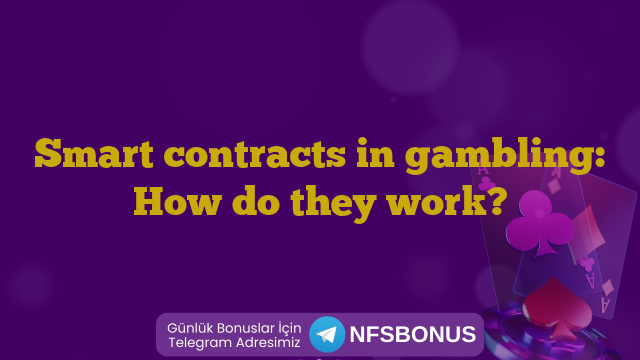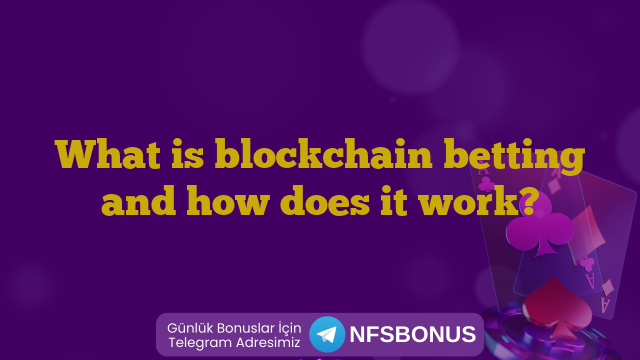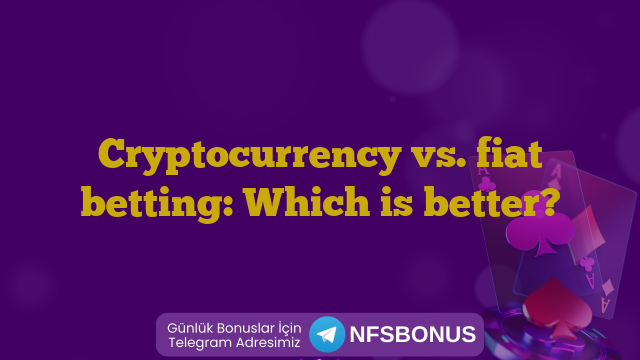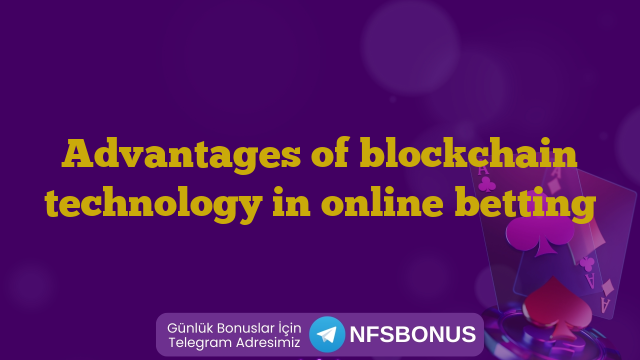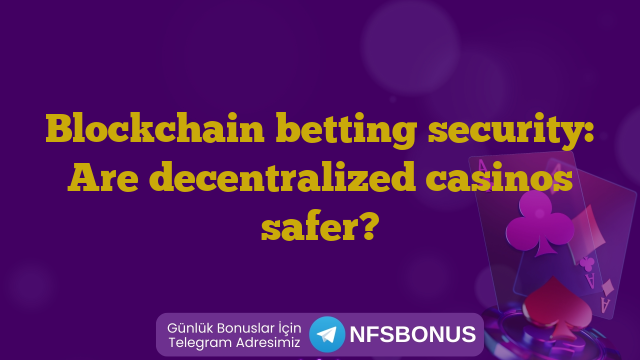In the ever-evolving landscape of the gambling industry, smart contracts are emerging as a groundbreaking technology, poised to transform how transactions occur and enhance user experiences. These self-executing contracts, driven by blockchain technology, automate processes and ensure transparency, reducing the risk of fraud and disputes. As online gambling continues to grow in popularity, the integration of smart contracts offers a promising solution for players and operators alike, fostering an environment of trust and fairness. This article delves into the mechanics of smart contracts, their pivotal role in revamping gambling transactions, and the implications for regulatory frameworks. Join us as we explore how this innovative technology is set to revolutionize the gambling world, paving the way for a more secure and equitable future.
What Are Smart Contracts and Their Role in Gambling?
Smart contracts are self-executing contracts with the terms of the agreement directly written into code. These digital contracts run on blockchain technology, which guarantees security, transparency, and immutability. In the context of gambling, smart contracts act as an intermediary that automates and enforces the terms of the gaming agreement without the need for traditional intermediaries, such as casinos or betting houses.
The role of smart contracts in gambling is multifaceted. Primarily, they facilitate secure transactions, automatically distributing winnings and refunds based on predetermined criteria coded within the contract. This reduces the potential for human error and enhances trust among players who may be wary of traditional online gambling platforms.
Moreover, smart contracts can streamline various gambling processes, such as bet placement and payout calculations. By utilizing the transparent nature of blockchain, players can verify the integrity of the games, ensuring that outcomes are fair and random. All these features combined help to create a safer and more efficient gambling environment, making smart contracts an essential innovation in the modern gambling industry.
How Smart Contracts Enhance Transparency in Gambling Transactions
Smart contracts significantly increase transparency in gambling transactions by automating the execution of agreements and removing the need for intermediaries. In traditional gambling systems, players often rely on operators to manage bets, payouts, and game outcomes, which can lead to mistrust and lack of transparency. However, smart contracts operate on a decentralized blockchain, allowing all transactions and their history to be recorded transparently, securely, and immutably.
When a player places a bet using a smart contract, the terms of the wager—including the betting amount, odds, and game rules—are coded into the contract. This means that once the bet is made, both the player and the operator can see the exact terms without manipulation or alteration. The automated nature of smart contracts ensures that as soon as the game concludes, outcomes are verified by the blockchain, and winnings are automatically paid out according to the agreed terms.
This level of transparency is crucial in an industry where players must trust that they are not being cheated. By making all transactions visible and verifiable, smart contracts provide players with the confidence that the games are fair and that the operators are following through on their promises.
Additionally, the use of smart contracts helps to reduce cases of fraud. Since the contract executes automatically based on pre-set conditions, there is less room for human error and manipulation. As a result, both players and operators can benefit from a more trustworthy gambling environment, setting the stage for an increasingly positive landscape in the online gambling industry.
Automating Gambling Processes With Smart Contracts
Smart contracts play a pivotal role in automating various processes within the gambling industry. By utilizing blockchain technology, these contracts operate on self-executing protocols that facilitate transactions without human intervention. This automation is instrumental in enhancing efficiency and reducing the likelihood of human error.
One of the primary advantages of using smart contracts in gambling is the reduction in transaction times. Traditional gambling processes often involve intermediaries, which can slow down the flow of funds and result in delays. Smart contracts streamline these processes, enabling instant payouts and wagers, thus improving user experience and satisfaction.
The automation provided by smart contracts also extends to game outcomes. Smart contracts can autonomously execute win conditions when specific criteria are met, which guarantees that players get immediate results. This not only enhances engagement but also reinforces trust in the platform, as users can verify the integrity of game outcomes.
Additionally, smart contracts can automate the management of funds. For instance, a contract can hold players’ deposits and only release winnings once all gameplay conditions are satisfied. This minimizes potential disputes between players and operators regarding fund management, as all actions are pre-coded into the contract.
The automation of gambling processes through smart contracts leads to more efficient operations, faster payouts, and greater transparency, ultimately creating a more robust and trustworthy gambling environment.
Reducing Fraud and Disputes Through Smart Contracts
In an industry often marred by allegations of fraud and disputes, smart contracts present a tantalizing solution. By utilizing blockchain technology, smart contracts create a decentralized approach to gambling that makes it notoriously difficult for fraudulent activities to flourish.
Firstly, one of the core advantages of smart contracts is their inherent transparency. Each transaction is recorded on the blockchain, which provides an immutable audit trail. Players can easily verify the outcomes of their games, the fairness of odds, and the distribution of winnings without relying on the potentially biased oversight of traditional gambling operators.
Moreover, smart contracts automate the payout process. This eliminates the human element that can often lead to disputes. For instance, once the conditions of the contract are fulfilled—such as a player winning a game—the contract automatically executes the payout. Players are less likely to challenge outcomes when they are assured that the results are mathematically verifiable and devoid of human error or manipulation.
In addition, the decentralized nature of the blockchain means that there is no single point of failure or control that could be exploited. This minimizes the risk of manipulation by operators or other third parties, ensuring that players can engage in gambling activities without fear of fraud.
smart contracts contribute significantly to reducing disputes between players and operators. The adherence to predefined rules and conditions forces all parties to comply with the agreed-upon terms, thereby fostering a sense of trust and reliability within the gambling ecosystem. As the technology continues to evolve, we can expect even greater enhancements in minimizing disputes and protecting player interests.
How Smart Contracts Ensure Fairness in Online Games
One of the significant advantages of smart contracts in the gambling industry is their ability to ensure fairness in online games. By leveraging blockchain technology, these contracts create a transparent environment where outcomes can be verified and audited by all parties involved.
Smart contracts operate on decentralized platforms, meaning that no single entity has control over the games or the outcomes. This decentralization reduces the chances of manipulation or biased results, as every game is governed by the immutable rules set forth in the smart contracts.
Additionally, smart contracts can utilize random number generators (RNGs) that are accessible and verifiable on the blockchain. This ensures that the randomness of game outcomes—be it in poker, slots, or any other gambling format—is genuine and fair. Players can trust that each game meets the industry standards for fair play.
The auditability of smart contracts is another feature that enhances fairness. Players can verify the smart contract code to confirm that it operates as intended and that the rules for winning are clearly defined. This transparency fosters a trustworthy relationship between players and gaming operators, as participants can be confident that they are playing under equitable conditions.
The implementation of smart contracts in online gambling does not just promote fairness but also enhances user trust, which is crucial for the sustainability of the gambling ecosystem.
The Impact of Smart Contracts on Gambling Regulations
The integration of smart contracts into the gambling industry brings significant implications for regulations that govern the sector. With their ability to automate processes and ensure transparency, smart contracts can help regulators create more robust frameworks that address compliance and accountability.
One of the most notable impacts is the potential for real-time auditing. Traditional compliance checks can be cumbersome and time-consuming, but smart contracts allow for automated reporting and monitoring. This ensures that operators adhere to regulations without the need for extensive manual checks, making it easier for regulators to maintain oversight.
Additionally, smart contracts can improve the integrity of gambling platforms. By eliminating human intervention and potential manipulation, these contracts enforce rules automatically and transparently. This increased reliability can lead to a more positive perception of gambling operators, encouraging greater trust among players and leading to more stable regulatory environments.
Another key aspect is that smart contracts facilitate cross-border gambling operations, as they can help navigate varying regulations by embedding compliance rules directly into the contract. This adaptability could pave the way for a more unified international approach to gambling regulations, allowing for greater cooperation among different jurisdictions.
However, integrating smart contracts into regulatory frameworks is not without challenges. Regulators will need to acquire comprehensive technical knowledge and develop frameworks that allow for the incorporation of this technology while safeguarding players’ interests. Overall, the impact of smart contracts on gambling regulations is poised to be transformative, promoting integrity, efficiency, and cooperation in the industry.
Challenges in Implementing Smart Contracts in Gambling
While smart contracts hold great promise for the gambling industry, their implementation is not without challenges. Here are some of the key hurdles that stakeholders face when trying to integrate smart contracts into gambling platforms:
- Technical Complexity: Developing and deploying smart contracts requires specialized knowledge in blockchain technology. The intricacies of coding these contracts can lead to errors that might compromise functionality or security.
- Regulatory Uncertainty: The regulatory landscape surrounding gambling is ever-evolving. Jurisdictions may have different rules regarding the use of smart contracts, making compliance difficult for operators looking to adopt this technology.
- Scalability Issues: As participation in gambling platforms increases, the ability of smart contracts to handle high transaction volumes becomes crucial. Current blockchain solutions may face scalability challenges, leading to slower processing times.
- Public Perception: Many potential users may not fully understand blockchain technology or smart contracts, leading to skepticism about their reliability and security. Building trust within the gambling community is essential for widespread adoption.
- Security Vulnerabilities: Although smart contracts can reduce fraud, they are still susceptible to hacking and exploitation. Any vulnerabilities in the code can be targeted by malicious actors, potentially leading to significant financial losses for both operators and players.
Overall, while smart contracts can significantly enhance the gambling experience, addressing these challenges will be essential for their successful integration into the industry.
Future Trends: Smart Contracts Revolutionizing the Gambling Industry
As the adoption of smart contracts continues to grow, the future of the gambling industry looks promising and transformative. Here are some emerging trends that highlight how smart contracts are set to revolutionize this sector:
- Increased Decentralization: The integration of smart contracts can lead to a more decentralized gambling environment, allowing players to interact directly without intermediaries, thereby reducing operational costs and promoting fairness.
- Enhanced User Experiences: With automation and real-time processing capabilities, gambling platforms utilizing smart contracts can offer more engaging and dynamic user experiences, including instant payouts and personalized game features.
- Integration with Blockchain Technology: Future gambling platforms are likely to increasingly adopt blockchain technology alongside smart contracts, ensuring a secure, transparent, and immutable record of all transactions and player activities.
- Innovative Betting Options: Smart contracts will enable novel betting models, such as peer-to-peer betting, where players can wager against each other, potentially increasing player engagement.
- Regulatory Adaptations: As smart contracts gain traction, regulatory frameworks will evolve to accommodate their use, possibly leading to clearer guidelines for operators and a safer environment for players.
The future trends surrounding smart contracts in the gambling industry suggest a move towards more efficient, transparent, and user-friendly platforms that could significantly shape how stakeholders engage in gambling activities.

